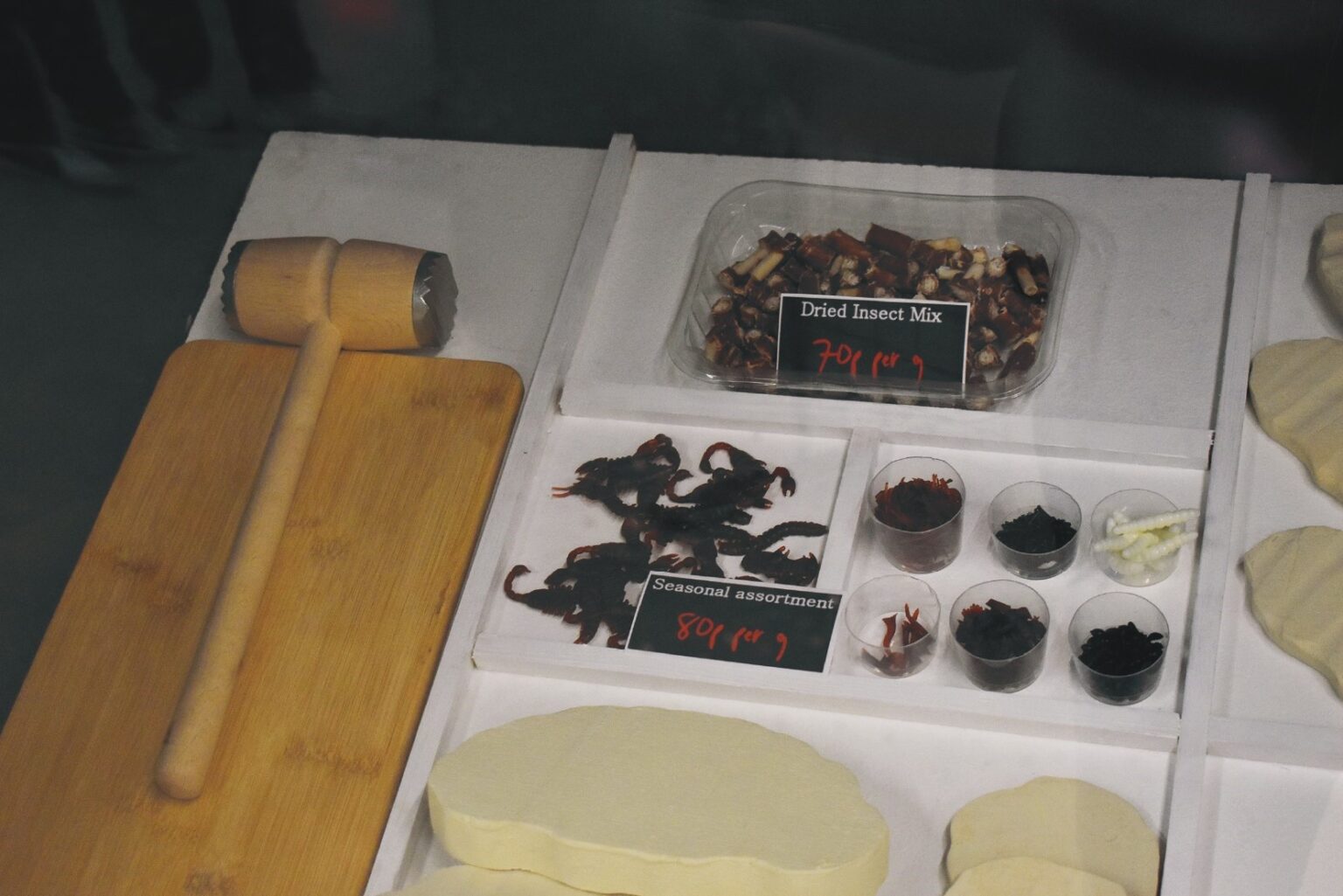Innovation & Technology Product Design
Man-Ching Kwok

I am a designer who is inspired by sustainability and mindful material use. I enjoy exploring ways where we can design with less, using innovative and responsible materials to create products or services that are both purposeful and environmentally conscious. My goal is to help shape thoughtful designs that reduce impact and inspire change.
Projects
Collaborative Work


Aptio.
Aptio. – Adapting with Us.
Designing Future Experiences – Individual Project Outcome
We are an adaptive material brand which utilises agricultural by-products whilst supporting farmers through the transition from livestock to entomophagy and plant based diets. Our focus is to bring awareness to the growing concerns surrounding the amount of waste accumulated within the farming industry by exploring the hidden potentials of crop and animal by-products. This in turn gives the materials a new life and brings value to them once again. Working alongside local farmers and communities, we are able to tackle this issue and explore how we can do our part in making the world a more sustainable and resourceful place. We at Aptio. believe that by bringing exposure to our changing world of resources, we can make a difference to our mentalities of materials.

Inspire Acquire – A Community of Sustainable Sharing
Developing Practice (Self-Initiated) – Project Outcome
We are an institutional online community marketplace designed to empower students by enabling the exchange of materials, ideas and expertise. Our platform encourages students to support and inspire one another whilst acquiring the materials or resources they need to bring their creative projects to life.
At the heart of our mission is a commitment to fostering a culture of care and respect for material use at an institutional level. We aim to contribute to a circular, regenerative materials economy by encouraging mindful reuse and collaboration.
Through our partnership with The Glasgow School of Art, we are working to promote more sustainable material practices for both individual and group projects.
Our goal is to strengthen community interaction across disciplines—connecting students from different courses and buildings who might not otherwise cross paths. By breaking down barriers within the institution, we hope to create a more collaborative, inclusive, and resource-conscious creative environment.
Project Links


Entomophagy – Creating Future Experiences
A Collaborative Project by –
Jemima MacFarlane
Ben Davis
Aidan Yeung
Man-Ching Kwok
Sara Dabrowska
-The Planetary Economic Group
The dominance of human activity on our planet’s health reached a tipping point, forcing governments to intervene and legislate the remediation of our increasingly compromised natural resources. The meat industry was identified as the leading cause of global deforestation in 2025. Despite corporate pushes for planetarian diets, slow adoption led to the global outlawing of conventional livestock farming and meat consumption by 2035.
Entomophagy emerged as the new normal, marking an era of efficient, sustainable food systems. Insects offered higher nutritional value while using fewer planetary resources than animal meat, fostering a reciprocal relationship between people and planet, where the health of one supports the other. Circular food systems reshaped agriculture, creating new roles, revenue streams, and collaborations across science, retail, and culture.
This exhibit, set in 2035, depicts a familiar scene: a butcher’s shop transformed, its window now filled with insect-based meats, symbolising a thriving local community adapting to new diet regulations. However, just around the corner is an abandoned alleyway which reveals the darker side. A black market for illegal animal meat which exposes people’s resistance to change. Visitors are invited to reflect on what it means to adapt sustainably and at what cost?
















